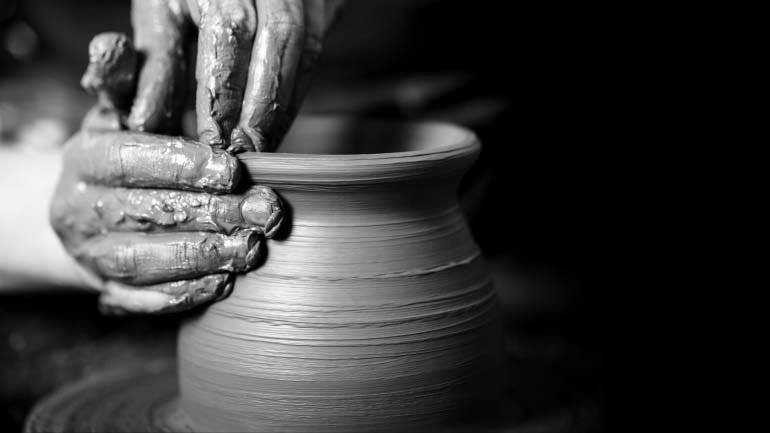What are you looking for?
Give your best performance in an interview that really matters to YOU
If you are an experienced professional appearing for middle to senior management level, go for the Interview Preparation Playbook™ on-demand video course, a unique offering to help you prepare for the big day. Or try seeking personal one-on-one support to give you the edge and make you stand apart from competition.
Shape your career how YOU would like it to be
Your career is in your hands, but a coach can help you shape it, grow it, or even change it, should you want. Manage your career with clarity and confidence. Go for the Career Acceleration Roadmap or Career Compass Coaching and create the career you always wanted.
Shape your career how YOU would like it to be
Your career is in your hands, but a coach can help you shape it, grow it, or even change it, should you want. Manage your career with clarity and confidence. Go for the Career Acceleration Roadmap or Career Compass Coaching and create the career you always wanted.
Become the best version of YOU personally and professionally
What does progress mean when you are already at the pinnacle? How do you better what is already so good? It requires inner work which then manifests outwardly. Gain Clarity, find Congruence, make a Change. Get a coach.
Start a conversation
Have a question? Write to me at info@valyoucoaching.com
Interested in getting coached? Please answer a few questions about yourself in this form.
Clients and Partners
Frequently Asked Questions
Who is coaching for?
Coaching can help anyone who is trying to make progress. Coaching is a good investment if you have a goal that you want to reach. It could be a personal goal such as cultivating a new habit, becoming more productive, becoming more fit, having better relationships. Or it could be a professional goal – such as advancing in your career, improving a skill, better business outcomes, etc. The coach becomes a partner, supporter, sometimes even a guide on your journey.
So if you have a vision of a better you or being in a better place than you are today, coaching can help you.
I have experienced mentors and friends I can talk to when I need guidance. Why then should I seek a coach?
You are lucky if you have a circle of people who can guide and advise you. But think back to some of your big achievements. Did you take coaching when you were preparing for any Entrance Exam? SAT/CAT/GMAT? Did you have a teacher who worked with you closely when you won a medal or prize in school? Have you ever worked with an instructor in the gym? If the answer is yes, you know the difference between doing it alone and having someone experienced on your side who is as focused on your success as you are.
A coach can add tremendous value in the following ways:
- A Coach provides an independent and external perspective that can help you gain new insights (it is likely that most of your circle of trusted advisors may be in the same environment as you and think like you)
- Gives honest feedback that helps us improve (again, our well-wishers may be blind to our weak areas or be reluctant to give feedback)
- Creates a safe space for you to share your innermost thoughts, fears and aspirations
- A Coach doesn’t stop at one-time advice, rather is a trained professional who walks the journey with you, helps you with clear goal setting, tracks your progress, challenges you and holds you accountable. He/she can be a catalyst to your success.
- The coach may be experienced in the path you want to walk and could share tips, tricks and techniques that may help you succeed.
Are there different types of coaching?
Yes, coaching approaches can vary. An important difference is between the common understanding of the word coaching, and the discipline of coaching.
In our colloquial understanding of coaching, the coach is part guide, part trainer, part consultant and advisor. Some examples of this could be fitness coaches, sports coaches, coaches that help you clear an entrance exam, job-search coaches etc. These coaches may have walked the same path as you, have a wealth of the experience in the same field and may have valuable tips, tricks, techniques they can share with you. There is a lot of sharing and ‘telling’ from the coach to coachee here. Often this type of coaching has a very specific end point – getting the medal, clearing an exam, etc.
But ‘coaching’ is also a discipline. This discipline focuses not on giving advice, but helping you gain insights. Often the goal here is not an event, but progress. Progress happens by the virtuous cycle of generating insights, application of the insight, feedback and change. The focus in this type of coaching is on ‘asking’, not ‘telling’. The Coach, primarily through powerful questions, or through tools, helps you make progress through exploration, generating options, challenging yourself, shedding limiting beliefs and gaining clarity. And then, in better goal-setting, action- planning and holding you accountable.
This type of coaching is also goal-based, but since improvement does not have an event-based endpoint, one can choose to keep setting the bar higher and keep working towards it with the help of a coach.
So what type of coaching do you do?
The answer is both. When helping clients prepare for a Job Interview, the tilt is towards the commonly understood meaning of the word coaching. I bring in my years of HR experience and training and share useful tips, techniques and advice help you. I’ll help you prepare, practice and polish your performance with a particular event in mind. It may require me to use some skills from the professional coaching discipline, for example working on mindset, or overcoming some limiting beliefs. However the focus is on enhancing your content and delivery so as to put the spotlight your strengths, skills and experience in context of what your interviewers might be seeking.
In Career and Executive Coaching, the focus is on improvement and progress. Here I lean heavily on techniques of the coaching discipline and ICF core competencies. In this approach, the intention is not to prescribe solutions, but to help you find your answers from within. I will work with you as a thinking partner. Our conversations will be focussed around helping you gain more clarity, set meaningful goals, tracking progress and holding you accountable to your action plan.
How should I choose a coach?
First, decide which type of coaching are you looking for. Is your vision of success event based (clearing an exam/writing and publishing a book/winning Masterchef/ running a marathon)? If yes, more than any kind of credentials or qualifications, you need someone who has walked the path themselves. Someone who knows the turf, its challenges and ways to overcome them first-hand. This should be an absolute must-have. So check into the history of the coach for evidence of this experience.
If you are seeking a Coach for an area where you are seeking progress, or clarity and direction, you may need someone who understands and is experienced in the discipline of coaching. Here, my suggestion is to look for these:
- Is the person formally trained in coaching and has a credential? Here, check the details of the credentialing body, how long it has been in existence, what values they follow, and if they are endorsed by other reputed bodies/organizations. Also, check their process of earning a credential. How thorough is it? Does credentialing require training as well as adequate practice? Coach credentialing is now an industry in itself with many players in the market, so you need to evaluate this carefully.
- What is the Coach’s background? Is the Coach experienced or has sufficient exposure to the same environment as yours? For example, if you are in the medical profession, a coach with a medical background may be able to connect with you a little bit better than one who is not. Or if you are working in the corporate sector, does the coach have a sound understanding of the corporate environment? If not from the same environment, has he/she coached many people from this environment so as to develop an understanding about it?
- Last but definitely not least, check for chemistry and connect. This is hard to define. Check whether you feel calm with the coach or agitated, nervous or anxious? Do you feel you can trust the coach with your innermost thoughts and that he/she will hold them gently and in utmost confidence? Does the Coach make you feel judged or as if you are being evaluated , or does it feel you are safe in this conversation? Very importantly, is the Coach a good listener and more interested in you, than sharing how great he/she is? You can know these when you have your first pre-engagement meeting with the coach.
Also look for all material the coach has put out in the public domain – any YouTube videos, LinkedIn posts, articles, etc. These should give you some idea about the coach’s philosophy, values, style, views and even expertise. Go ahead only if you feel comfortable with these.
How can I be assured that confidentiality will be maintained?
Trust is a prerequisite of a coaching relationship. Coaches accredited by ICF are bound by client-coach confidentiality. I sign on a confidentiality clause as part of the Coaching Contract with every client. I will not publish even client testimonials with any identifying details or refer to anyone as a client publicly without their express and written consent. Your identity and details shared during an exploratory call, even if you do not engage me as your coach, will be held confidential.
Breaking the bond of trust with a potential, current or former client is anathema personally and nothing short of professional suicide.
Testimonials
Can coaching really help you?
Can you imagine a world-class athlete or your favourite sportsperson reaching the pinnacle without a coach’s help? In every field, there is real competition. A qualified coach helps you achieve your goal with their skills, knowledge and passion and by helping you discover and hone yours. Neha Parashar would love to be on your side and back you up with all her training and experience.



